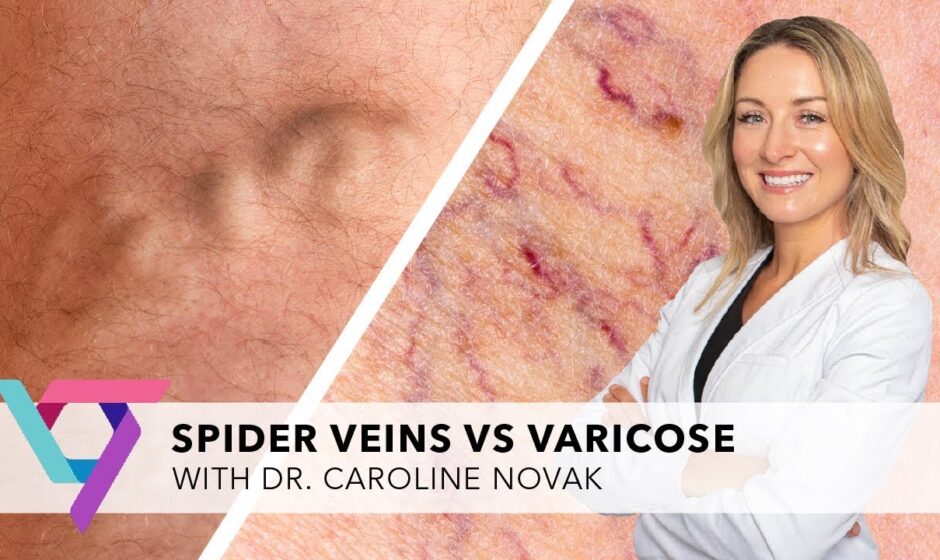A vein specialist, also known as a phlebologist or vascular surgeon, is a medical professional trained to diagnose and treat conditions affecting the veins. These specialists undergo extensive training in vascular health and work in a vein treatment center to help patients suffering from various vein-related disorders. If you are experiencing discomfort, swelling, or visible vein abnormalities, consulting a vein specialist is crucial for proper diagnosis and treatment.
What Are Varicose Veins and How Are They Treated?
Varicose veins are enlarged, twisted veins that usually appear on the legs and feet. They develop when the valves in the veins become weak or damaged, causing blood to pool instead of flowing smoothly back to the heart. A vein specialist offers several treatment options at a vein treatment center, including:
- Sclerotherapy: A minimally invasive procedure that involves injecting a solution into the affected veins, causing them to collapse and fade over time.
- Endovenous Laser Therapy (EVLT): Uses laser energy to seal off varicose veins, redirecting blood flow to healthier veins.
- Radiofrequency Ablation (RFA): Similar to EVLT, but uses radiofrequency energy to close problematic veins.
- Surgical Procedures: In severe cases, procedures like vein stripping or microphlebectomy may be required to remove large varicose veins.
What Causes Spider Veins and Can They Be Treated?
Spider veins are small, red, blue, or purple veins that appear close to the surface of the skin, often on the legs and face. These veins are caused by weakened blood vessels, hormonal changes, prolonged sitting or standing, and genetics. Treatment options at a vein treatment center include:
- Laser Therapy: Uses targeted light energy to break down the affected veins.
- Sclerotherapy: Injects a special solution that causes spider veins to shrink and disappear.
- Lifestyle Changes: Wearing compression stockings, exercising regularly, and maintaining a healthy weight can help prevent and manage spider veins.
How Does a Vein Specialist Treat Deep Vein Thrombosis (DVT)?
Deep Vein Thrombosis (DVT) is a serious condition where a blood clot forms in a deep vein, usually in the legs. This condition can be life-threatening if the clot breaks loose and travels to the lungs, causing a pulmonary embolism. A vein specialist provides treatments such as:
- Anticoagulant Medication: Blood thinners help prevent the clot from growing and reduce the risk of complications.
- Thrombolytic Therapy: In severe cases, clot-dissolving medications may be used to break up the clot.
- Compression Therapy: Special stockings help improve blood flow and reduce swelling.
- Surgical Procedures: In some cases, a vein specialist may perform a thrombectomy to remove the clot.
What Is Chronic Venous Insufficiency and How Is It Managed?
Chronic Venous Insufficiency (CVI) occurs when veins struggle to return blood to the heart, leading to leg swelling, pain, and skin changes. A vein treatment center offers solutions such as:
- Compression Stockings: Help improve circulation and reduce swelling.
- Medications: Certain medications can strengthen vein walls and improve blood flow.
- Minimally Invasive Procedures: EVLT, RFA, and sclerotherapy can be used to close problematic veins and restore circulation.
- Lifestyle Adjustments: Regular exercise, elevating the legs, and avoiding prolonged standing can help manage symptoms.
How Can a Vein Specialist Help With Leg Ulcers?
Leg ulcers are open sores that develop due to poor circulation and are often associated with vein disease. These wounds can be slow to heal and prone to infection. A vein treatment center provides the following treatments:
- Wound Care Therapy: Specialized dressings and medications promote healing.
- Compression Therapy: Improves circulation and speeds up the healing process.
- Vein Treatments: Addressing underlying vein issues with sclerotherapy, EVLT, or RFA can prevent recurring ulcers.
What Are Reticular Veins and Are They Harmful?
Reticular veins are small, blue or green veins that appear beneath the skin but do not protrude like varicose veins. They are often a cosmetic concern but can sometimes cause discomfort. Treatment at a vein treatment center includes:
- Sclerotherapy: The most effective treatment for fading reticular veins.
- Laser Therapy: A non-invasive method to target and shrink these veins.
- Preventive Measures: Regular movement, compression stockings, and a healthy diet can prevent worsening of these veins.
What Are Pelvic Congestion Syndrome and Its Symptoms?
Pelvic Congestion Syndrome (PCS) is a condition where varicose veins form in the pelvic area, leading to chronic pelvic pain, especially in women. A vein specialist diagnoses and treats PCS through:
- Pelvic Ultrasound or MRI: To confirm the presence of varicose veins.
- Minimally Invasive Procedures: Embolization is a common treatment where a coil or special solution is used to block the problematic vein, relieving symptoms.
- Medication: Pain relievers and hormonal treatments may help manage discomfort.
How Can a Vein Specialist Address Lymphedema?
Lymphedema is a condition characterized by swelling in the arms or legs due to lymph fluid buildup. It often occurs after surgery, radiation therapy, or due to vein disease. A vein treatment center offers:
- Manual Lymphatic Drainage (MLD): A specialized massage technique to reduce swelling.
- Compression Therapy: Helps improve fluid drainage and prevent further swelling.
- Exercise Programs: Gentle movement routines improve circulation and reduce symptoms.
- Surgical Options: In severe cases, surgery may be needed to remove excess tissue.
Conclusion
If you are experiencing any vein-related conditions, visiting a vein treatment center and consulting a qualified vein specialist is essential for proper diagnosis and treatment. Whether you need help with varicose veins, spider veins, DVT, or chronic venous insufficiency, these professionals provide effective solutions to restore vein health and improve your quality of life. Understanding what kind of doctor is a vein specialist and their role in vein care ensures you receive the best treatment for your needs. Don’t ignore vein problems—early intervention can prevent complications and enhance overall well-being.


